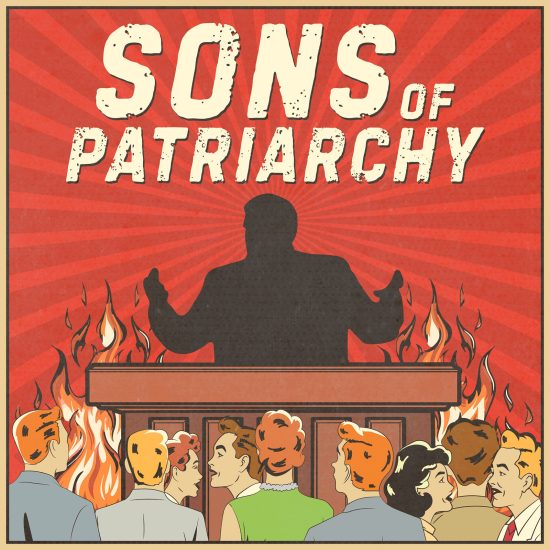
Baptists in Estonia held in-person worship services on Sunday (May 10) for the first time in two months. But even as coronavirus restrictions in Baltic nation start to ease, Baptists there continue to adapt their ministry to reach their secular nation in these unusual times.
As of May 15, more than 4.5 million people globally have been infected with the COVID-19 respiratory disease caused by coronavirus, and more than 306,000 have died. In Estonia, more than 1,700 people have tested positive and 63 have died. The country’s infection rate per one million people is 1,331, while the death rate is just 47 per million. By comparison, the U.S.’s infection rate is 4,445 per million, while the death rate is 265 per million.
First confirmed in the nation on Feb. 27, the first nearly two dozen cases involved people who traveled from other countries. The hardest-hit part of Estonia, the island of Saaremaa, experienced an outbreak after a volleyball team from Italy competed there on March 4. The nation shut down schools and public events after the first Estonian case of local transmission was confirmed on March 12.

Helle Liht speaks at the 2018 Baptist World Alliance annual gathering in Zürich, Switzerland. (Brian Kaylor/Word&Way)
Helle Liht, an Estonian who serves as assistant general secretary for the European Baptist Federation, told Word&Way that the country is “doing quite well considering the current circumstances.”
“Last Sunday, 10th of May, we celebrated Mother’s Day and the government gave all congregations permission to open their church buildings and hold worship services for the first time since the emergency restrictions were introduced on March 12,” she added. “Of course, certain rules had to be still followed (distance between people, sanitation, masks available, etc.) and not all churches decided to use this opportunity, but is a clear sign that things are getting better.”
For the Union of Evangelical Christian and Baptist Churches in Estonia, the last two months have brought challenges and unique ministry opportunities. According to the Baptist World Alliance, there are 85 Baptist churches in Estonia and about 6,500 members. This makes them a small minority in a nation with more than 1.3 million people, though Baptist have ministered in the nation since 1884.
Considered one of the least religious countries in the world, about 70% of the population claims no religious affiliation. Although Baptists are the third-largest religious group, they account for less than 0.5% of the population — far behind the Eastern Orthodox (16%) and Lutheran (10%) traditions, and about the same size as Catholics.
Erki Tamm, president of the Estonian Baptist Union, thinks their past prepared them to handle the adversities caused by the pandemic. In 1940, the Soviet Union attacked and started occupying its smaller neighbor. Estonians suffered persecution from the Soviets until regaining independence in 1991.
“I think it has been somehow easier for us to adjust to the coronavirus restrictions having lived under the regime of totalitarian Soviet system experience with a lot of restrictions,” he told Word&Way. “Back then we also found ways to share the Gospel and build God’s Kingdom.”
“Difficult times have made our prayers and thoughts deeper and centered on Christ who died and rose again. God is alive and present through Holy Spirit,” he added.

Screengrab of Erki Tamm speaking during a televised worship service on March 29 created because of coronavirus restrictions.
Tamm noted that once church services and all other public events were prohibited on March 12 due to coronavirus, churches worked to minister in new ways.
“Very quickly about 30 churches moved their services to the internet, using different platforms,” he explained. “Everybody started to improve their technical equipment. The Union shared on its website information about different technical solutions and posted e-church services of different churches.”
“Even Estonian public media, that used to be very skeptical about Christian churches, published a lot of information about e-churches,” he added. “Estonian national television started a program for Sunday worship services, and with the Ecumenical Council of Churches we shared this possibility between different denominations.”
Tamm also mentioned that a younger church in the Union — 3D Church — is pushing to innovate even more during the pandemic. He said they held a “hackathon” to “reach more people with the gospel in the time of crisis.” Borrowing from the idea of computer programmers working together over a short time to fix a problem, this spiritual “hackathon” involved a Zoom gathering with breakout teams to brainstorm solutions for new ministry efforts in light of COVID-19 and its consequences.
“Churches have found many more visitors through the internet platforms than before the crisis, and have found ways to keep contact with the elderly people as well,” Tamm reflected. “For new planted organic churches this situation is very familiar. They have been always present in social media and created web-based solutions for people.”
Also impacted by the coronavirus restrictions was the Kõrgem Usuteaduslik Seminar, the Estonian Baptist seminary where Liht teaches. They started doing sessions and even examinations on Zoom, which she thought “have gone very well with high level participation by the students, and good lectures and discussions.”

Screengrab of Einike Pilli (upper left) during a Zoom planning session for Kõrgem Usuteaduslik Seminar.
Einike Pilli, rector of the seminary, also told Word&Way the “virtual classes have gone well” — except they “have missed coffee and hugs, which we like to share when we meet.” And she thinks the circumstances “made us innovative.”
“Our faculty has learned quickly how to use Zoom, it’s tricks and tools which it offers and which make learning interactive and enjoyable,” she added. “This time of lockdown has inspired us to start some new short webinar type of courses, which have been surprisingly well attended. For example, ‘Discipling Leader’ brought together more than 50 participants. Of course, you cannot do important things too hastily, but in these times a fast course is much better than no course at all.”
As the pandemic continues but Estonia experiences a slight easing in restrictions, Baptists there remain hopeful about the health situation. But regardless what the future holds, they hope to continue adapting their ministries to reach more people in their nation.






